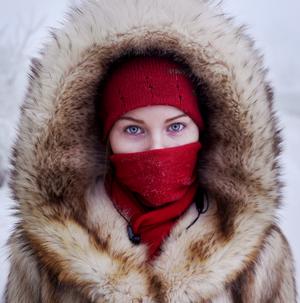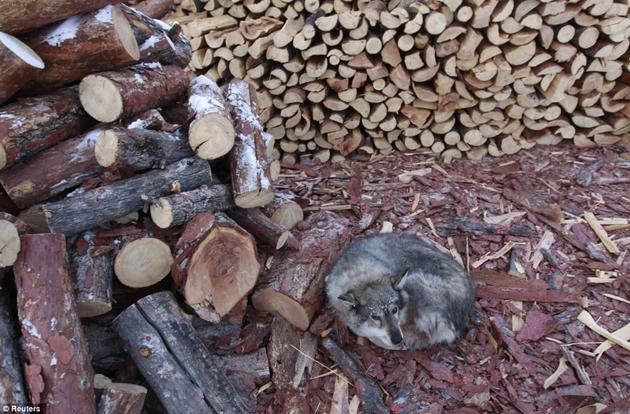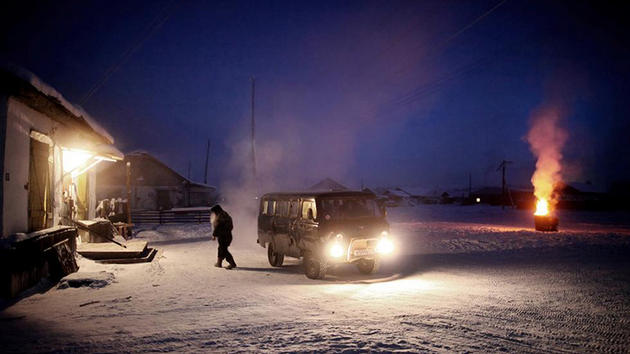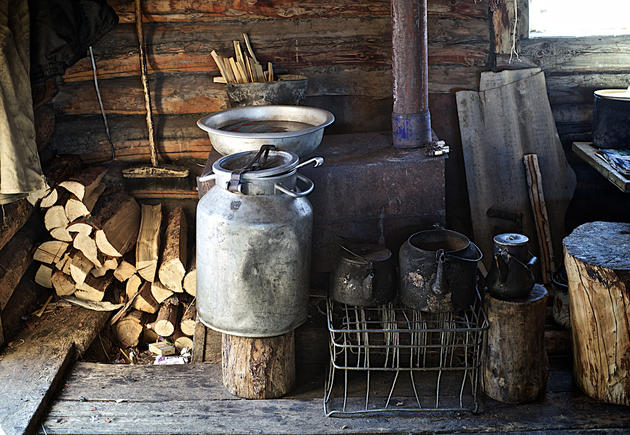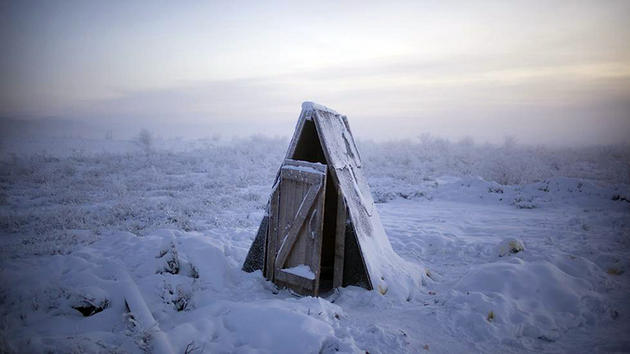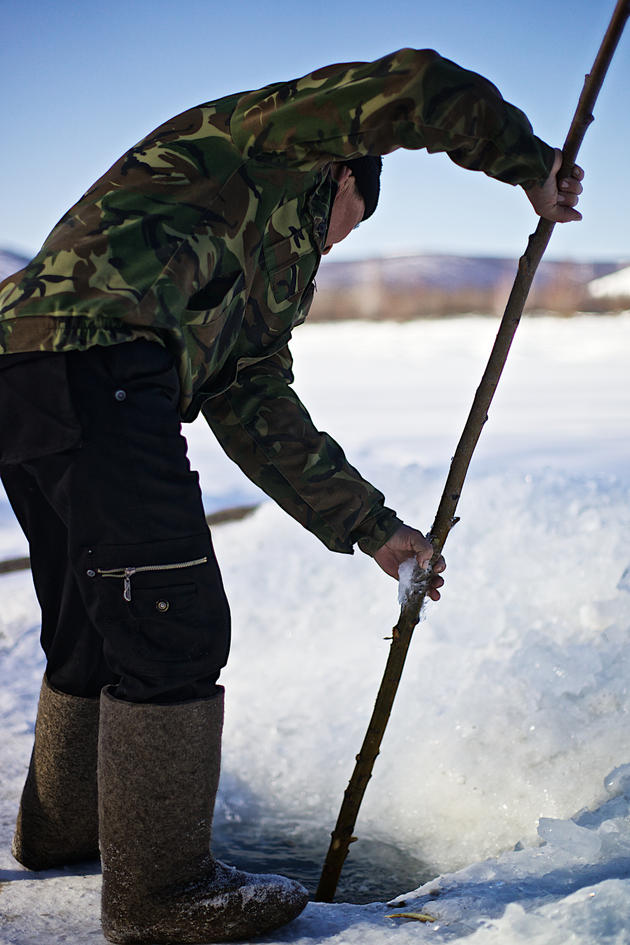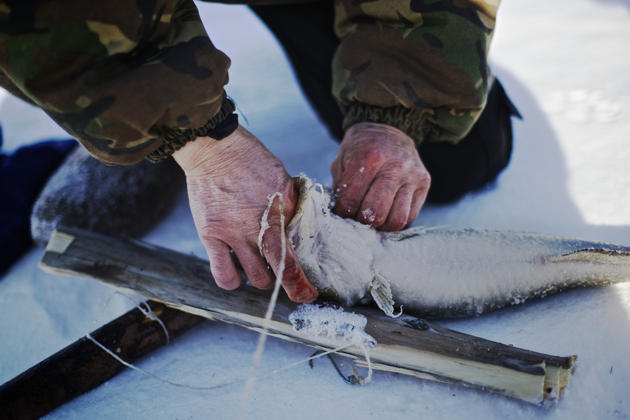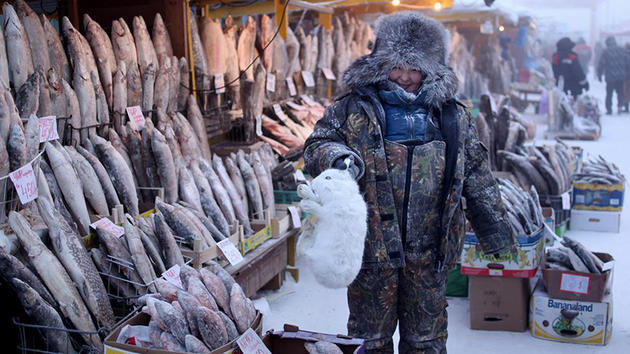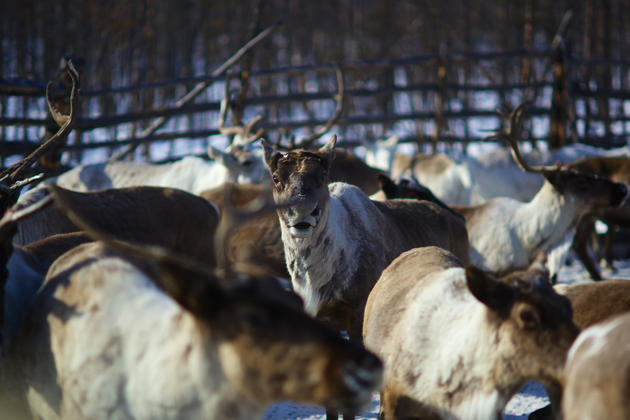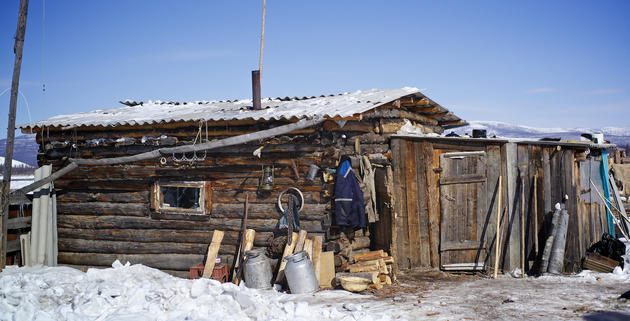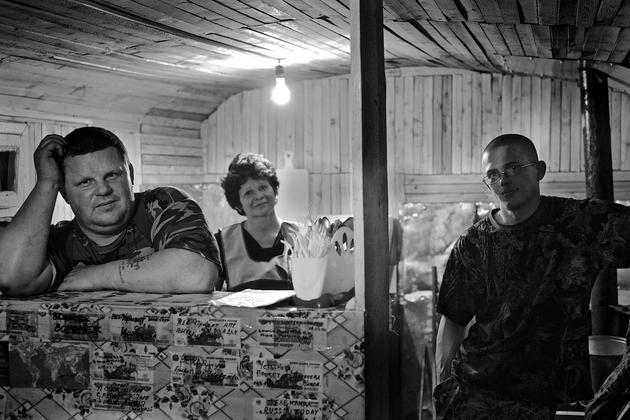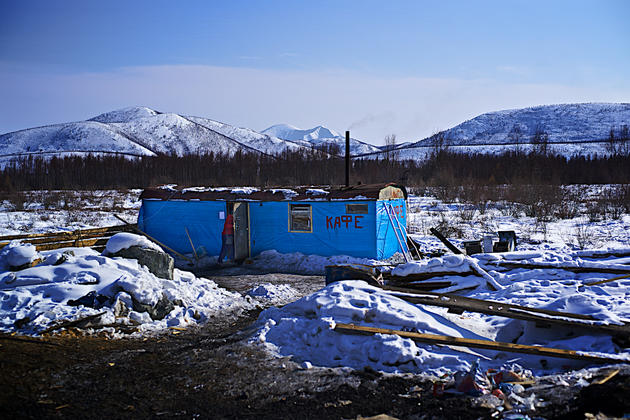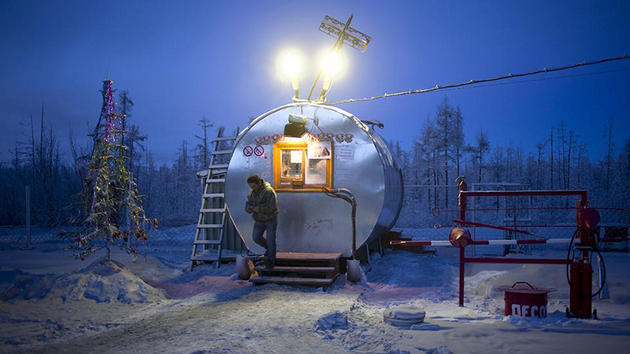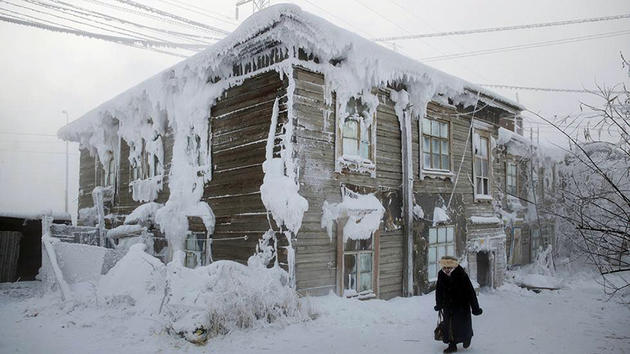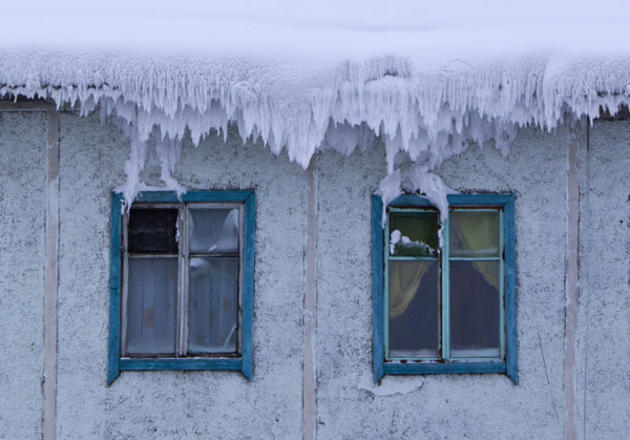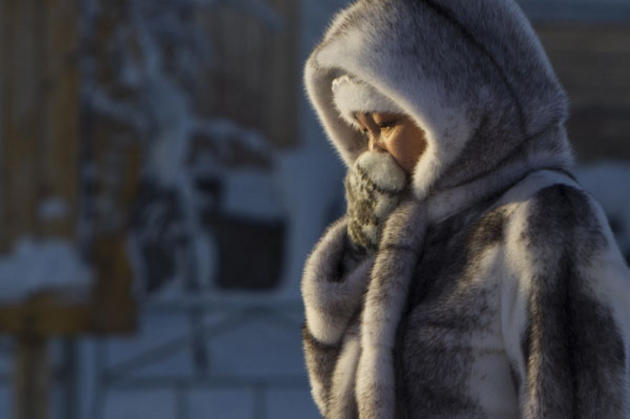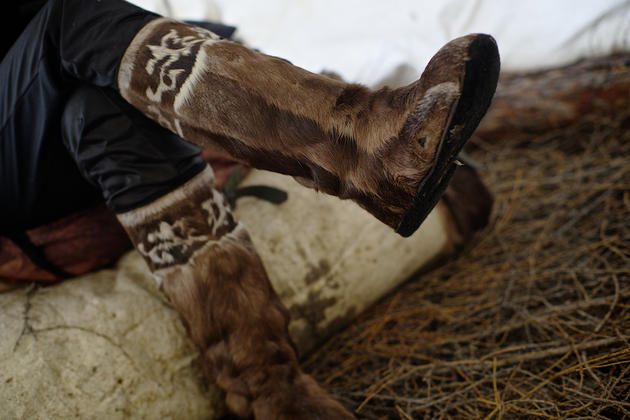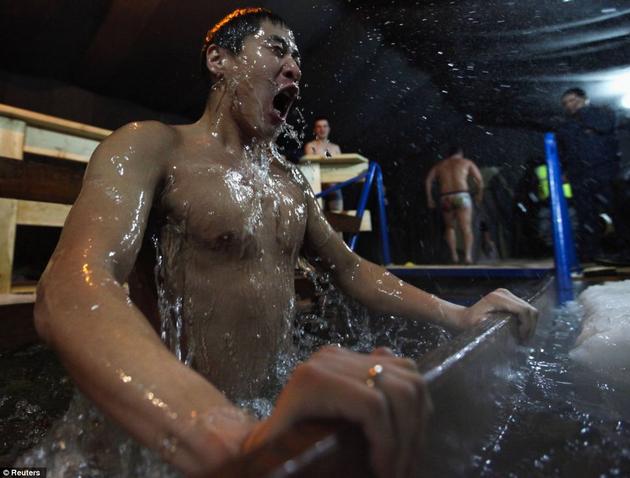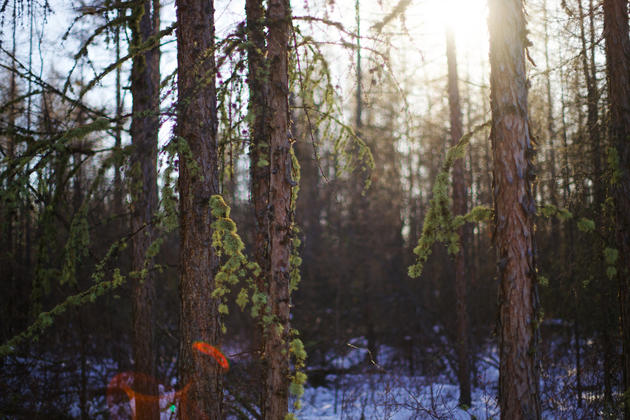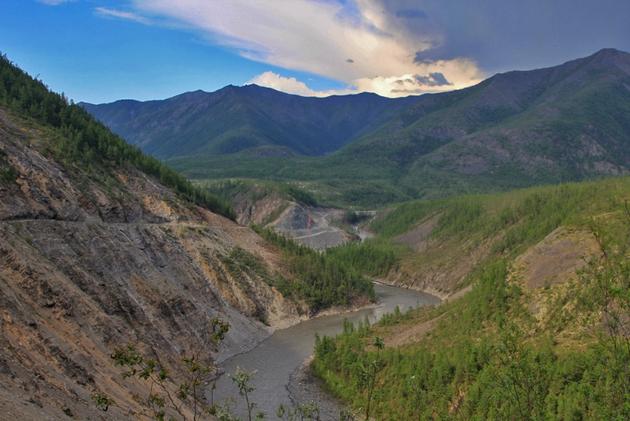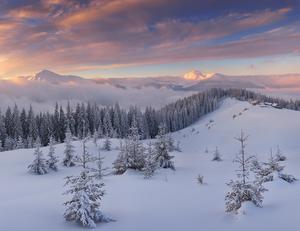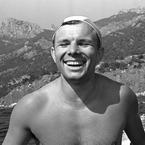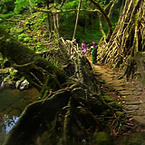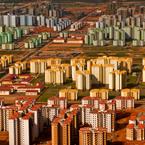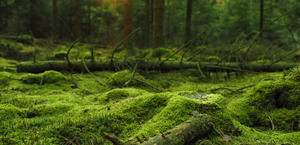Oymyakon: The Coldest Village on Earth [20 Pics]
Feb 8 2014
Oymyakon, Russia has been dubbed the coldest village on earth.
Known as the "Pole of Cold", this northern Russian village averages -51°C in January, with an all-time record low temperature of -71°C in February of 2013.
A dog curls up on wood shavings near a wood pile. The power station is forced to burn wood when coal is unavailable due to irregular coal deliveries. Photo: Reuters.
Living in Oymyakon, as you can imagine, comes with some very interesting challenges. Eye glasses are known to freeze to faces, batteries lose power very quickly, cars have to remain running during the day if they are not parked in a heated garage, and even if there was mobile phone reception, the phone batteries would not survive the cold.
Vehicles need to be left running when they are out in the cold. Photo: Amos Chapple.
Wood-burning stoves are used to heat homes in Oymyakon. Photo: Alex Saurel.
Modern conveniences are rare here. Many buildings use outdoor toilets. Brr! Photo: Amos Chapple.
Because the growing season in Oymyakon is so short, people don't often eat many fruits or vegetables. Their diets consist mainly of reindeer meat, horse meat, fish, and milk from their farm animals. Even though fruits and vegetables are rarely eaten, malnourishment is not an issue here.
A local spends time ice fishing for food. Photo: Alex Saurel.
Fishing provides a fresh source of food for residents of Oymyakon. Photo: Alex Saurel.
As crazy as it sounds, there are people whose livelihood depends on working out in the cold, such as that of this fish monger. Photo: Amos Chapple.
A herd of reindeer in a farmer's enclosure. Photo: Alex Saurel.
Oymyakon is home to many unique buildings. Originally used as a stopover for reindeer herders, it is now home to 500 people, with only 1 store to provide provisions to residents, and 1 petrol station nearby.
A horse-keeper's wooden house. Photo: Alex Saurel.
Patrons at the Lost Bar, sometimes described as the loneliest bar on earth. Photo: Alex Saurel.
The Lost Bar, sometimes described as the loneliest bar on earth. Photo: Alex Saurel.
The petrol station on the way to Oymyakon. Photo: Amos Chapple.
Photo: Amos Chapple.
Photo: Reuters.
Fur is one of the only ways to stay warm in Oymyakon and is used out of necessity, not fashion. Traditional reindeer boots are very popular in the region, but can cost upwards of 300 euros.
Photo: Alex Saurel.
Photo: Amos Chapple.
Photo: Alex Saurel.
Here are a few more photos for you to enjoy. Oymyakon is a very unique place to live, and companies offer tours of the area to those who are curious and want to experience it for themselves.
A local man takes an icy dip in the Lena River, inside of a tent, to celebrate the Orthodox Epiphany on January 18. Photo: Reuters.
Taiga forest. Photo: Alex Saurel.
Although Oymyakon is most known for its bone-chilling winters, the surrounding region is a popular tourist destination during the summer. Many companies offer multi-day treks through the region so tourists can experience the breathtaking beauty.
Share this post:
Like our Facebook page & receive daily updates on your wall:
You May Also Like
Winter in the Carpathian Mountains [20 Pics]
Jan 9 2014
The Carpathian range spans 1,500km and holds one third of all the plant species in Europe. It's a home to many animal species such as brown bears, wolves, chamois and lynxes. Photos by Alexander Kotenko.
